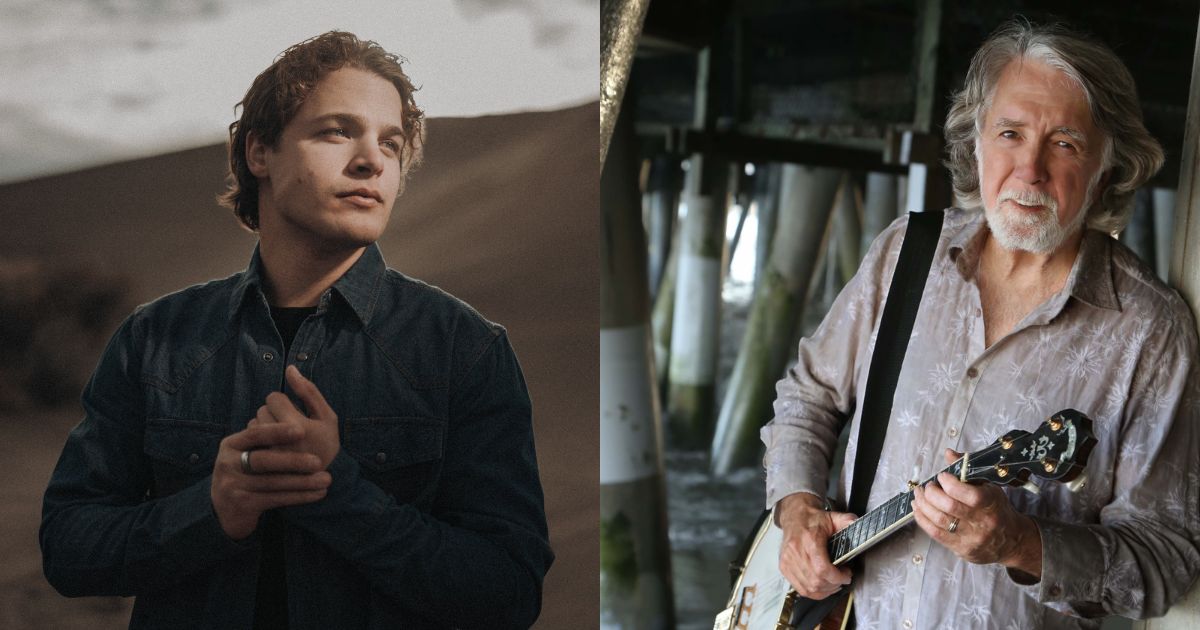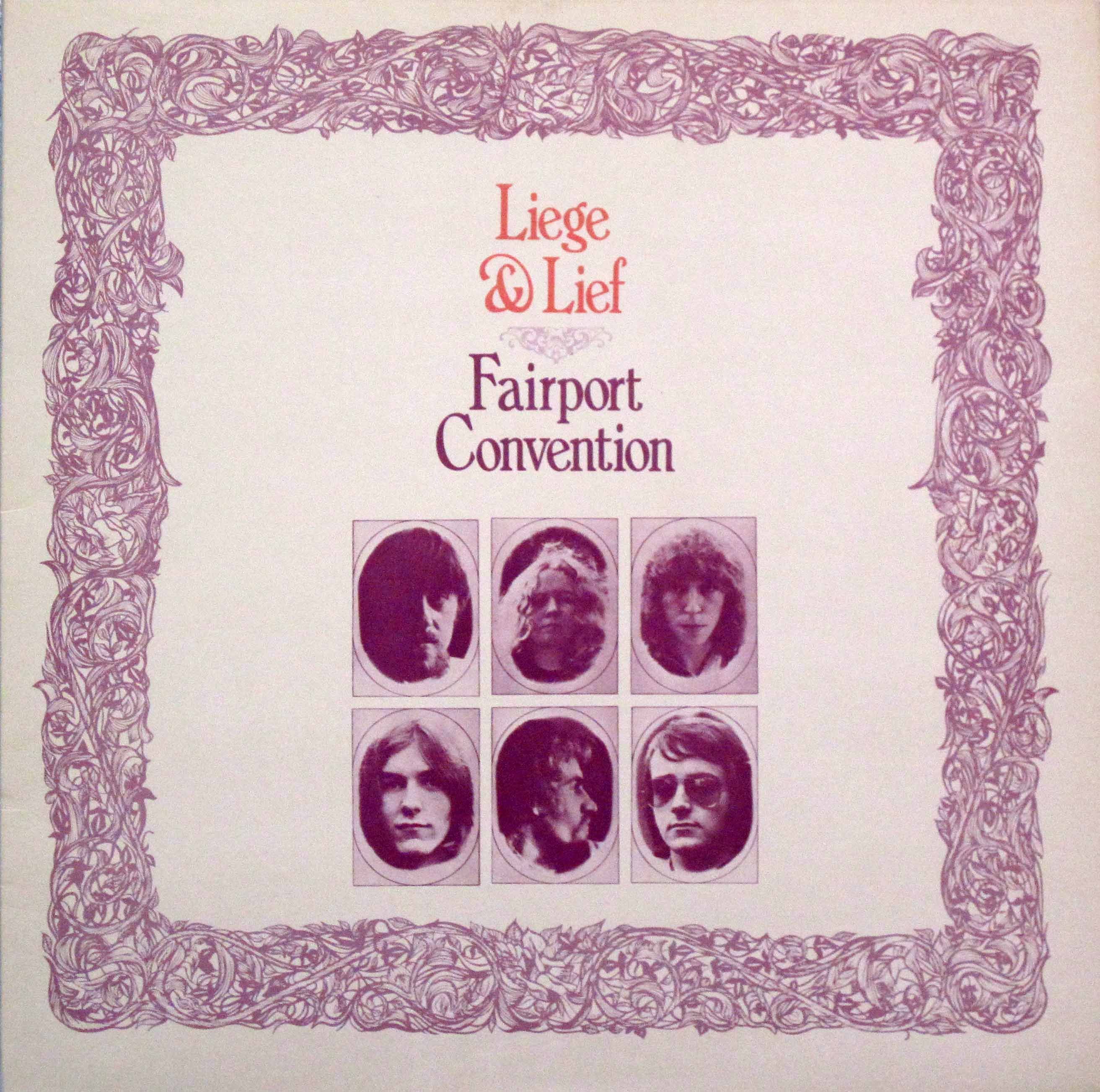This week, banjoist and Nitty Gritty Dirt Band founding member John McEuen kicks off our You Gotta Hear This round up with a track from his brand new album, The Newsman: A Man of Record. Check out his adaptation of a Robert Service poem, “The Cremation of Sam McGee” below.
Plus, we’ve got track premieres from gritty country outfit Tylor & the Train Robbers, from Claire Lynch singing Tom Paxton for an upcoming album, Bluegrass Sings Paxton, from the Stetson Family contemplating mortality, and from the Onlies a rendering of a classic old-time ballad.
Don’t miss our video premiere from Max McNown, too, which posted to BGS just yesterday. It’s all right here and, if we do say so ourselves, You Gotta Hear This!
John McEuen, “The Cremation of Sam McGee”
Artist: John McEuen
Hometown: Oakland, California
Song: “The Cremation of Sam McGee”
Album: The Newsman: A Man of Record
Release Date: April 12, 2024
Label: Compass Records
In Their Words: “Using sound effects, music I composed, and some ‘recording tricks’ with instruments, I concocted the back up for one of my favorite poems, ‘The Cremation of Sam McGee.’ My (late) older sister would sometimes tell her 8-10 year old brother, me, this favorite Robert Service poem from 1906, captivating me with the story of a place unknown. I later found it in my high school English book and fell in love with it again. It takes me away to that strange time in these miners’ lives, and while starting kind of morose, manages (in my opinion, anyway) to reach a ‘happy ending’ with Sam finally getting warm! Trying to make the ‘definitive’ version of this classic was a challenge. It is one of my best ‘works.’ I am hoping each time a listeners hears it they will hear something different show up in the mix, as I planned it to be ‘with surprises’ like that.” – John McEuen
Claire Lynch, “I Give You The Morning” (by Tom Paxton)
Artist: Claire Lynch from Bluegrass Sings Paxton
Hometown: Toronto, Ontario, Canada
Song: “I Give You The Morning”
Album: Bluegrass Sings Paxton
Release Date: April 12, 2024 (Single)
Label: Mountain Home Music Company
In Their Words: “Claire Lynch has one of the most recognizable and expressive voices in bluegrass. We knew we wanted to have that voice on the album and her choice of ‘I Give You The Morning’ was a great call — it’s got an old-fashioned ballad construction, a deliciously unusual yet natural rhythm to the first lines in each verse, a captivating melodic rise in the refrain, and an evocative lyric. And, the band has just the right balance of strength and delicacy to complement those same qualities in her approach. It’s a performance that brings out so many aspects of what makes Tom Paxton’s songs so memorable, and I can’t think of a better way to introduce this project to listeners!” – Jon Weisberger, co-producer
“Since the early 1960s, when bluegrass and the emergent folk revival first crossed paths, arguably no songwriter from the latter world has seen more of their songs adopted by the former than Grammy Lifetime Achievement Award recipient Tom Paxton. From early covers of his epochal ‘The Last Thing On My Mind’ by Bluegrass Hall of Famers, The Dillards and the Kentucky Colonels, to regular performances of ‘Leaving London’ by IBMA Entertainer of the Year Billy Strings, to Ashby Frank’s version of ‘Can’t Help But Wonder Where I’m Bound,’ which landed a place among the 30 most-played tracks on bluegrass radio in 2023, Paxton’s creative visions have echoed in bluegrass studios, on bluegrass stages and in bluegrass jam sessions for generations.
“Now a broad-ranging group of artists in and around bluegrass are paying explicit tribute to this vital legacy in a new Mountain Home Music Company collection — Bluegrass Sings Paxton — that places these classic songs alongside less familiar, but no less finely crafted material from the Tom Paxton songbook, including new songs written especially for the project.” – Mountain Home Music Company
Track Credits:
Claire Lynch – Lead vocal
Darren Nicholson – Mandolin, octave mandolin
Deanie Richardson – Fiddle
Chris Jones – Acoustic guitar
Kristin Scott Benson – Banjo
Nelson Williams – Upright bass
Tylor & the Train Robbers, “Workin Hands”
Artist: Tylor & the Train Robbers
Hometown: Boise, Idaho
Song: “Workin Hands”
Album: Hum of the Road
Release Date: April 12, 2024 (single); May 3, 2024 (album)
In Their Words: “I wrote this one around a guitar riff I had been playing with for a while. The riff is busy, but something about it stuck in my head and I decided to write a song to match it. I wanted to keep the intensity of that guitar part and extend to every instrument in the band, pushing us all musically. Everyone in the band worked to find the right parts that brought it all together. The vibe is inspired by bands like Barefoot Jerry and the Amazing Rhythm Aces, it’s unpredictable and keeps you on your toes. It’s definitely not a song I would ask someone to sit in with us on unless they came prepared, but it’s become a favorite for us to play live. I think it really showcases the musicianship of everyone in the band.” — Tylor Ketchum
Track Credits:
Tylor Ketchum – Lead Vocals and Rhythm Guitar
Jason Bushman – Bass Guitar and Harmony Vocals
Tommy Bushman – Drums and Harmony Vocals
Rider Soran – Lap Steal Guitar
Johnny Pisano – Electric Guitar
Cody Braun – Hand Claps and percussion
Katy Braun – Hand Claps
Jonathan Tyler – Hand Claps and percussion
Recorded at Yellow Dog Studios in Wimberley, Texas.
Producer – Cody Braun
Engineer – Adam Odor
Mixed by Jonathan Tyler.
Mastered by Adam Odor.
The Stetson Family, “Make Me Ashes”
Artist: The Stetson Family
Hometown: Melbourne, Australia
Song: “Make Me Ashes”
Album: The Stars, If You Look Closely
Release Date: April 19, 2024
In Their Words: “‘When it’s time to meet my maker, come the fire or the hole…’ – the words ‘fire or the hole’ come from a conversation I had with a woman who was the owner of a Vietnamese restaurant in Melbourne where my family and I went every Wednesday night for many years. When my mum passed away, Lisa, the lovely Vietnamese owner, asked me in broken English, ‘Does your mum have the fire or the hole?’ Meaning, ‘Will she be cremated or buried?’ I loved her humble way of asking, it was so heartfelt. It got me thinking about when it’s my time, will I have the fire or the hole? This song lets people know I’ve chosen the fire.” – Nadine Budge
Track Credits:
Nadine Budge – Writer, lead vocal, rhythm guitar, resonator guitar
John Bartholomeusz – guitar, harmonies
Colin Swan – banjo, harmonies
Greg Field – fiddle, mandolin, harmonies
Luke Richardson – double bass, harmonies
The Onlies, “Matty Groves”
Artist: The Onlies
Hometown: Nashville, Tennessee; Durham, North Carolina; Whitesburg, Kentucky
Song: “Matty Groves”
Release Date: April 12, 2024
In Their Words: “A couple years ago, our friend Sonya Badigian sent a recording of Doc Watson playing this song and recommended we learn it as a band. Before going into the studio, Leo spent many weeks singing the long, epic poem which tells the story of Matty Groves stealing Lord Daniel’s wife and the dramatic duel that later ensues. This story dates back to 17th century Northern England, closely related to Child ballad #81, ‘Little Musgrave and Lady Barnard.’ When we got together to work up an arrangement, a driving fiddle melody emerged to accompany the lyrics. We recorded it late at night in a small studio in Eunice, Louisiana, with the help of incredible engineer Joel Savoy and the unmistakable bass groove of Nokosee Fields.” – Sami Braman
Track Credits:
Leo Shannon – lead vocal and guitar
Vivian Leva – harmony vocal and guitar
Sami Braman – fiddle
Riley Calcagno – banjo
Nokosee Fields – bass
Max McNown, “Worry ‘Bout My Wandering”
Artist: Max McNown
Hometown: Bend, Oregon
Song: “Worry ‘Bout My Wandering”
Album: Wandering
Release Date: April 12, 2024
Label: Fugitive Recordings x The Orchard
In Their Words: “‘Worry ‘Bout My Wandering’ was probably the most difficult song for me to write as it’s so personal. It came from being far away from my family and thinking about my mom and wondering how she feels about my life and the direction it’s taken. Shooting the video in my beautiful home state of Oregon was very important to me… I just always want to make my family and hometown proud.” – Max McNown
Photo Credit: John McEuen by Henry Diltz; Max McNown by Benjamin Edwards.

